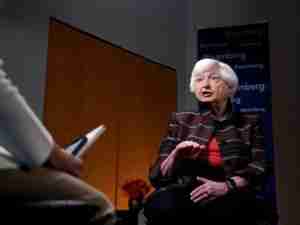May Seeks Allies in Brexit Talks on Visit to Poland and Slovakia
By: Robert Hutton | Jul 27 2016 at 07:01 PM | International Trade
Theresa May will visit Slovakia and Poland Thursday, seeking allies for her Brexit negotiations in countries already skeptical about aspects of European Union membership yet with hundreds of thousands of their citizens dependent on jobs in the U.K.
After meeting Robert Fico, her Slovak counterpart, in Bratislava, May will travel to Warsaw to see the Polish prime minister, Beata Szydlo. The British premier has already visited Germany, France and Italy in her first two weeks in office as her government considers how to achieve the greatest access to the EU market after leaving while cutting immigration from the bloc.
Poles provide the U.K.’s largest group of foreign nationals, with 850,000 living in Britain. Their rights as Britain leaves the EU are a source of great concern in Warsaw, according to Pawel Swidlicki, policy analyst at Open Europe, a London-based think tank.
“An absolute red line for Poland is the rights of Poles already in the U.K.,” he said. “They’d also like some kind of non-discriminatory route for migrants in the future, and for Britain to continue contributing to the EU budget.”
May will be able to reassure them on the first of those. Speaking in Rome on Wednesday, she said she wants, expects and intends to be able to guarantee the rights of EU citizens already living in the U.K.
‘Early On’
“The only circumstances in which that would not be possible would be if the rights of British citizens living in other EU member states were not guaranteed,” she said. “But I hope that this is an issue that we can address early on.”
According to Swidlicki, Poles have viewed the Brexit vote as a rejection of the EU institutions, rather than a response to migration from Eastern Europe. “Poland specifically, but more generally Eastern Europe, sees Brexit as an opportunity to put Brussels in its place,” he said.
He said Szydlo will also seek to keep Britain engaged with delivering security to its European neighbors against any attempts by Russia to increase its sphere of influence.
May told reporters in Rome that she’s got “an open mind” on what sort of deal the U.K. should negotiate over Brexit and that ministers have already started meeting “to prepare and plan for an orderly departure.”
Meanwhile, European Commission President Jean-Claude Juncker named Michel Barnier, the architect of some of the EU’s most controversial financial regulation, to lead the negotiations with Britain. Barnier, a Frenchman, frequently traded blows with the U.K. during his time as head of banking legislation from 2010 to 2014.








